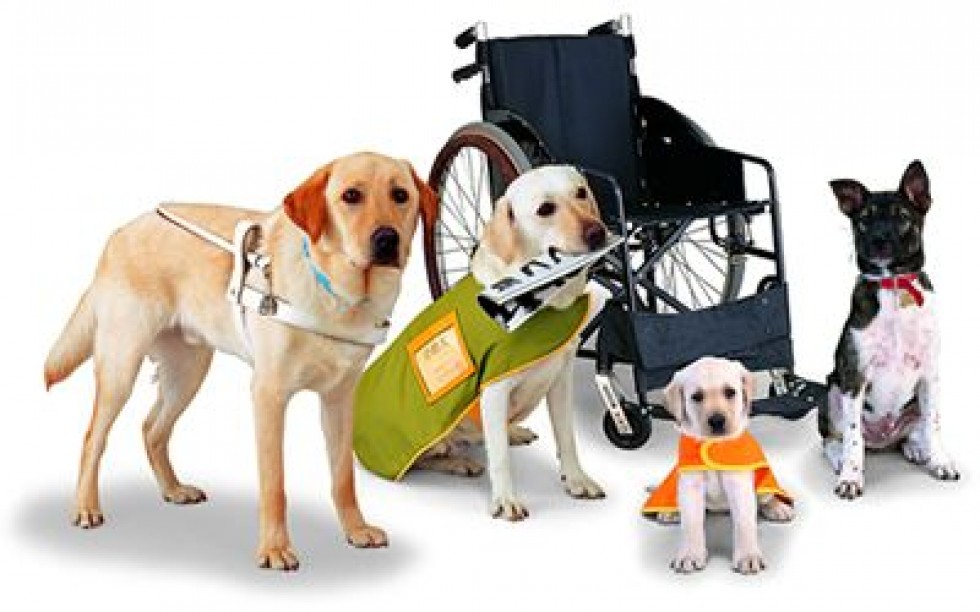Are Emotional Support Animals Just Fake Service Dogs?

No! Emotional Support Animals are NOT fake Service Dogs.
There are major legal differences between emotional support animals and service animals. Knowing the difference will help you in understanding your rights. It will also determine how you go about obtaining the right documentation and identification for your animal.
What is the Purpose of Emotional Support Animals and Service Animals
By helping individuals with disabilities function better in society, emotional support animals (ESAs) serve a higher purpose than regular house pets. The sole purpose of an emotional support animal is to provide therapeutic benefits to individuals with mental, emotional or psychological disabilities.
On the other hand, service animals provide direct assistance to people with disabilities. A service animal’s main purpose is to perform functions and tasks that individuals with disabilities cannot perform themselves. Direct assistance includes guiding individuals who are blind, picking up items, or alerting and calming a person experiencing a panic attack/anxiety.
What Kinds of Animals can be Emotional Support Animals?
Emotional support animals are not limited to just dogs. All domesticated animals can qualify as an emotional support animal as long as they are not a nuisance and are manageable in or around public areas.
Under titles II and III of the Americans with Disabilities Act (ADA), service animals are limited to dogs and, in some cases, miniature horses. The animal must be able to perform tasks directly related to the owner’s disability. Although service animals are limited to dogs and miniature horses, the ADA does not restrict the type of dog breeds.
Training Requirements for ESA’s and Service Dogs
Emotional support animals are not required by law to have special training because their role is to provide emotional comfort, companionship, friendship, and affection to their owner or handler. Their presence mitigates stress associated with the owner’s psychological or emotional disability.
However, service animals are required under law to be highly trained to work or perform tasks for people with disabilities. To ensure good public behavior and adequate support, dogs undergo extensive training before they become service animals. While every state has different laws regarding training, it can take roughly 1 to 2 years to train a service dog although there are not age requirements. Although training is required by law, people with disabilities are not required to use a professional service dog training program. They may train their service animal themselves.
Documentation for ESA’s and Service Animals
Emotional support animals are not covered under the Americans with Disabilities Act (ADA). Owners are required to acquire an ESA letter, provided by a licensed mental health professional before they are granted access to apartments with a no-pets policy. The letter should state how the owner’s disability substantially limits their lifestyle and how an emotional support animal is necessary for treating their mental health.
Service animals, on the other hand, are entitled to accompany their owners in all public areas and facilities. Under ADA, businesses are only allowed to ask (1) if the dog is required due to a disability and (2) what task the dog has been trained to perform. Unlike owners of emotional support animals, service animal owners are not required to show documentation. Some service animal handlers may chose to carry an service dog identification card or have a vest on their service dog to avoid harassment by people who are ignorant to service dog rights.
We hope this helps clarify some misperceptions you may have had on Emotional Support Animals and Service Dogs! Share this article to help your friends or family find the help they may need.
About the Author: The writing team at Service Dog Certifications is made up of folks who really know their stuff when it comes to disability laws and assistance animals. Many of our writers and editors have service dogs themselves and share insights from their own experiences. All of us have a passion for disability rights and animals.
1 comment
Leave a Reply Cancel reply
Latest Posts

Can You Bring a Service Dog to the Hospital?
Yes, you can bring your service dog to the hospital. ADA service dog laws protect your right to be accompanied by your service dog in hospitals, just as in other public places. However, there are some important exceptions you should be aware of — particularly in sterile environments like operating rooms where patient safety concerns […]

Read More

How to Select Treats During Service Dog Training
The key to effective service dog training is matching your treats to the task: use high-value treats for teaching crucial skills like medical alerts or guide work, medium-value treats for practice sessions, and basic treats for everyday good behavior. There is an incredible variety of service dog tasks that help with qualifying disabilities, from acting […]

Read More

Can You Bring a Service Dog to a Grocery Store?
Yes! Service dogs can go into any grocery store with you, even if the store has a no-pets policy. It’s that simple: it’s your right under the Americans with Disabilities Act. If you can go somewhere in the store, your service dog can, too. In some cases, service dogs can even ride in the shopping […]

Read More





I lost my three sisters two of them in one year they were not so old when I lost my younger sister hit hit me really bad I became a recluse I just barely got out of bed never got dressed never went out did not want to see anybody my children were worried they talked to some professional people and they suggested that they get me a dog I cannot thank them enough because of the dog I had to do things I would not have done the dog gave me back my life I am also very claustrophobic and with the dog with me I can now go on elevators go in a plane and stay calm I still take meds for depression but now I am again functional would my dog be considered a service dog